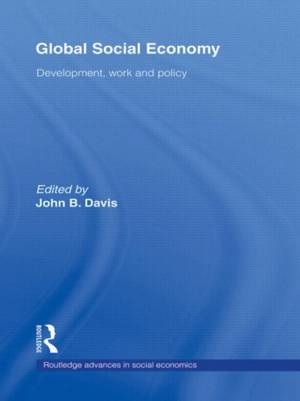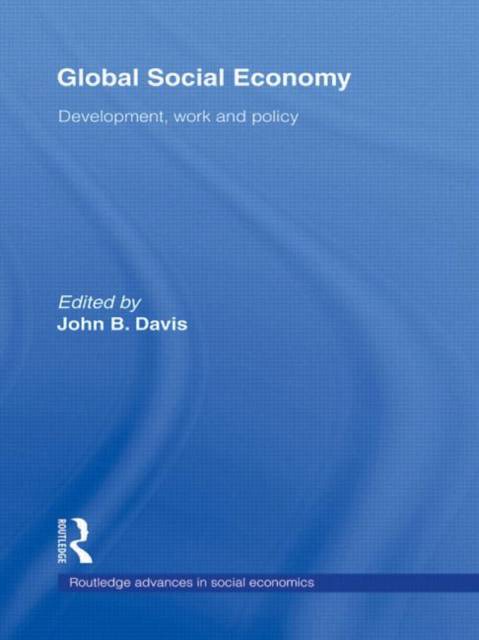
- Retrait gratuit dans votre magasin Club
- 7.000.000 titres dans notre catalogue
- Payer en toute sécurité
- Toujours un magasin près de chez vous
- Retrait gratuit dans votre magasin Club
- 7.000.000 titres dans notre catalogue
- Payer en toute sécurité
- Toujours un magasin près de chez vous
Global Social Economy
Development, work and policy
Description
This book addresses 'global social economy' which addresses the relation of capitalism to human flourishing, the role of international governance in the world economy, the transformation of work and use of time in internationalizing economies, cross-country developments in gender, poverty, and ageing, and ethics economic policy issues in the international economy.
This edited collection examines the social nature of capitalism today, the possibilities for social and economic development in the world under the democratic leadership of the United Nations, and the middle ground between market and hierarchy occupied by gift exchange as a means of coordinating economic value creation and the creation of knowledge. It considers long term issues in the global social economy concerning gender and discrimination, intergenerational poverty transmission, and the role of ageing.
From a variety of internationally acclaimed contributors, this collection introduces new social economic perspectives on the global economy that contest the neoliberal Washington Consensus view dominant until recent financial crises.
Spécifications
Parties prenantes
- Editeur:
Contenu
- Nombre de pages :
- 314
- Langue:
- Anglais
- Collection :
- Tome:
- n° 14
Caractéristiques
- EAN:
- 9780415746632
- Date de parution :
- 11-11-13
- Format:
- Livre broché
- Format numérique:
- Trade paperback (VS)
- Dimensions :
- 150 mm x 226 mm
- Poids :
- 340 g






